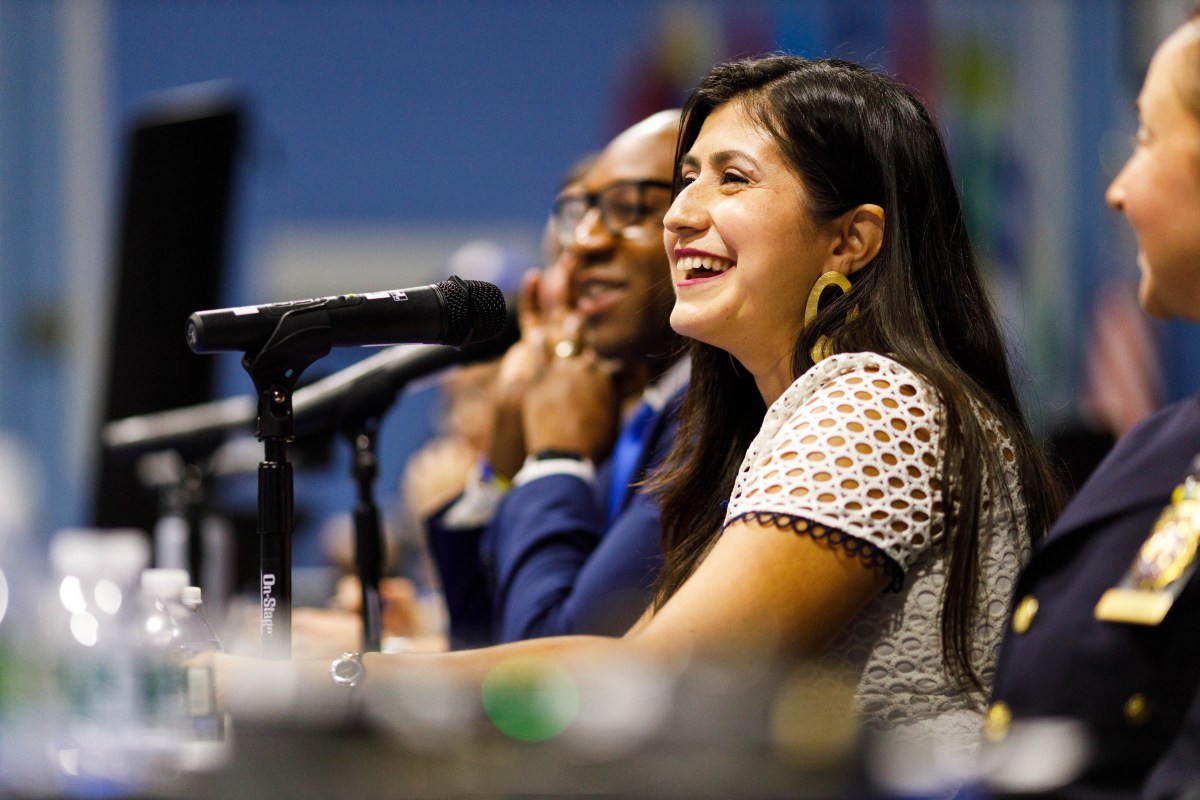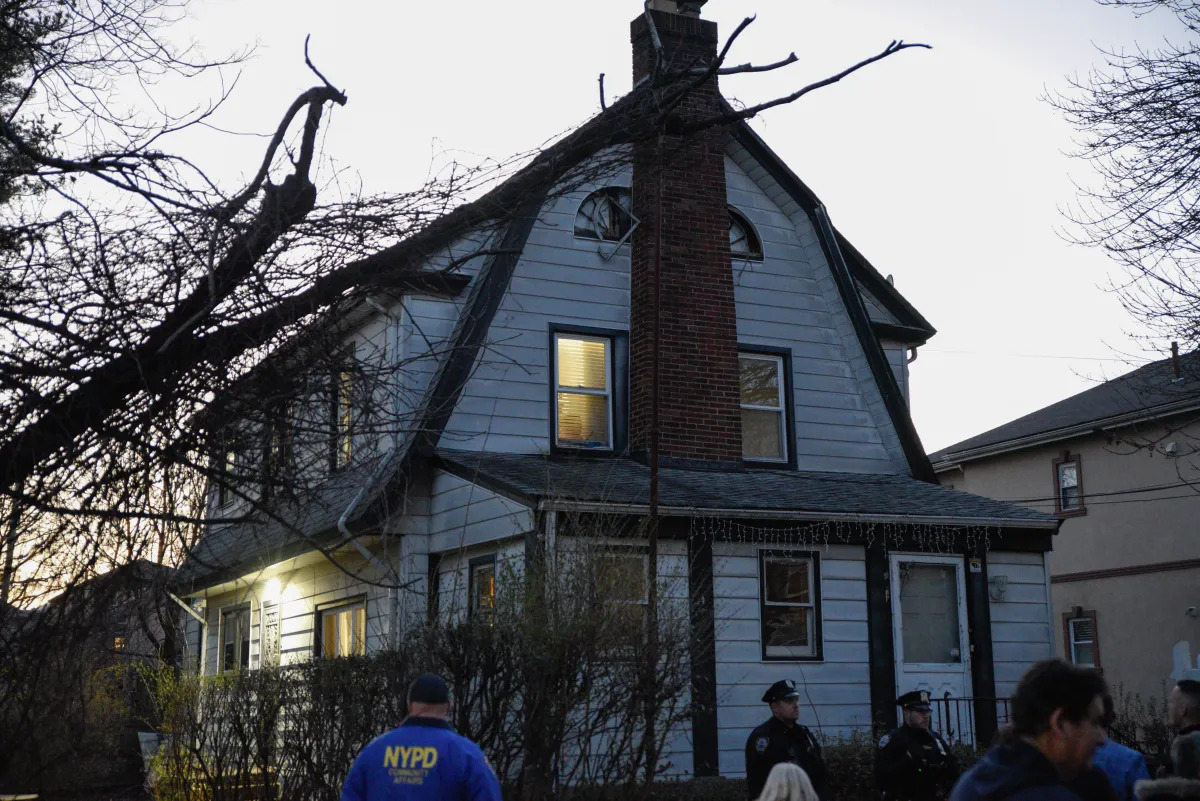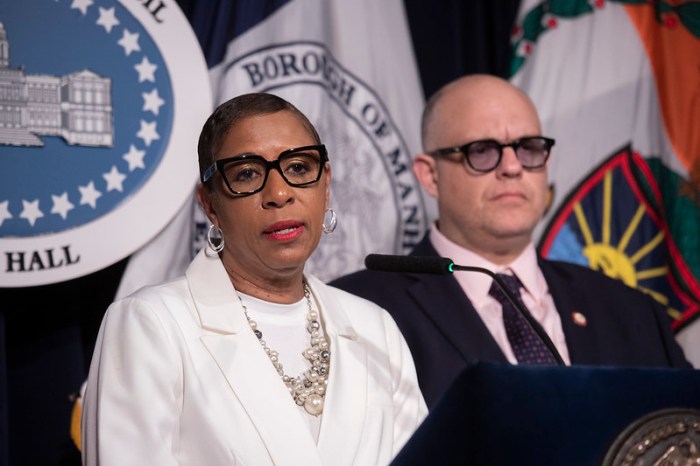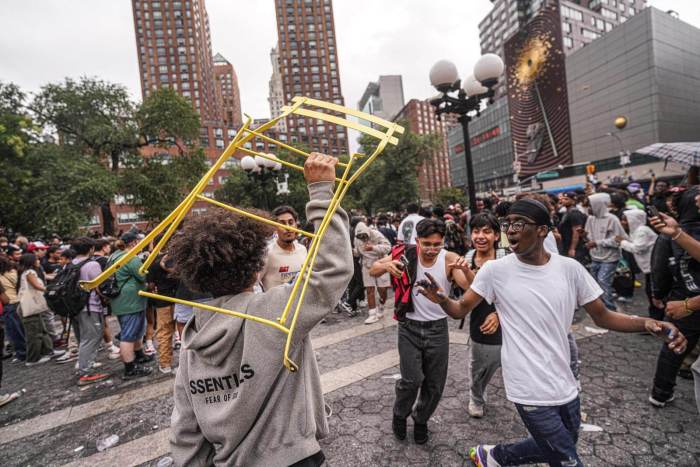
BY LINCOLN ANDERSON | Carl Weisbrod and Jennifer Jones Austin, the co-chairpersons of Mayor-elect Bill de Blasio’s transition team, toured the Talking Transition tent, at Canal St. and Sixth Ave., this past Sunday. In doing so, they joined several thousand New Yorkers who had already visited the two-week, interactive hub during its first week.
Austin is C.E.O. and executive director of the Federation of Protestant Welfare Agencies. Weisbrod, a partner at HR&A, a real estate and economic development consultancy, has deep roots in city government and urban policy.
Ten foundations, including George Soros’s Open Society Foundations, are spearheading the initiative. Talking Transition is designed to allow New Yorkers to weigh in on the issues and concerns that matter most to them. At the end of the two weeks, the data and ideas discussed will be collected and presented to Mayor de Blasio.
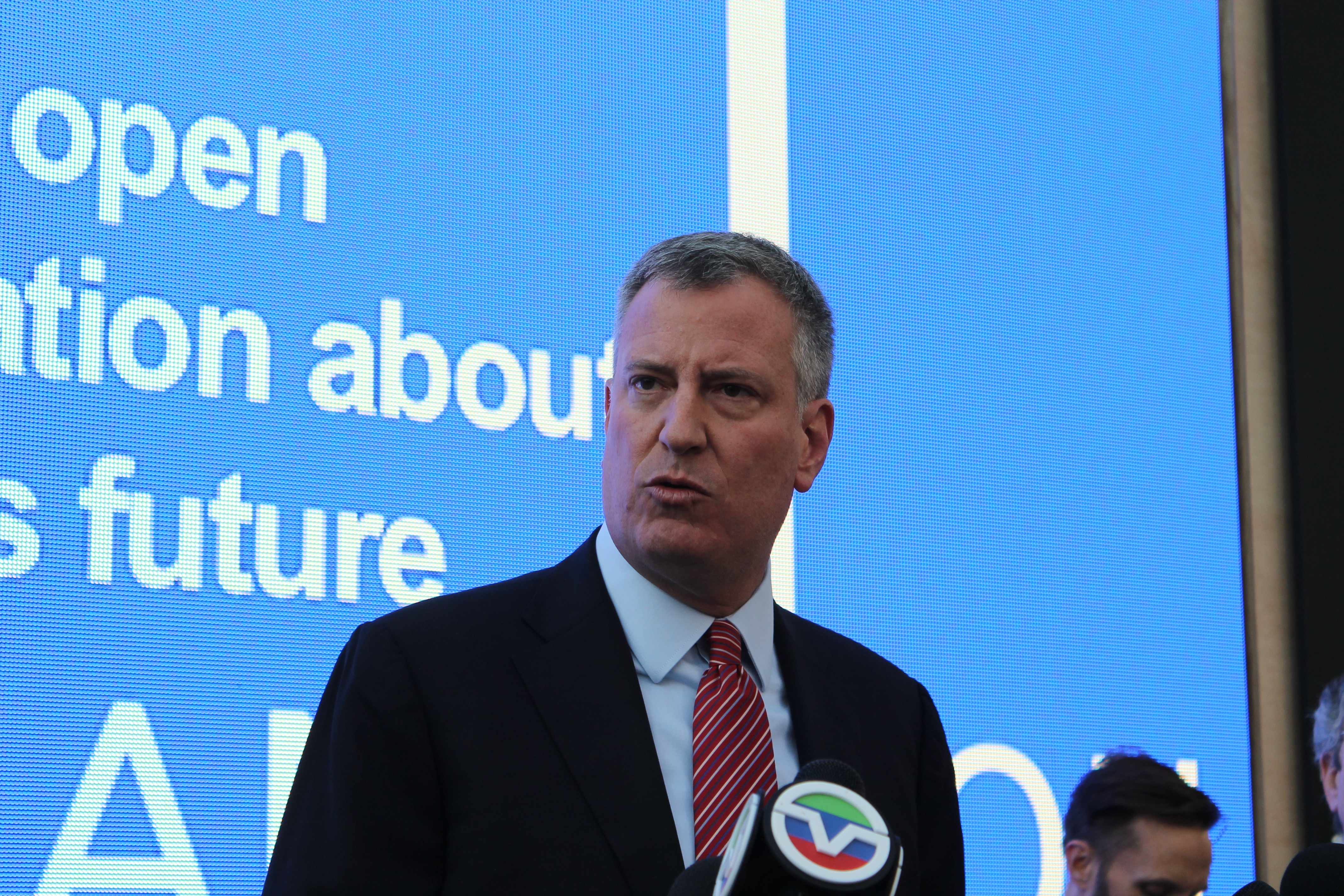
At the tour’s start, Austin and Weisbrod stressed that Talking Transition is independent of the actual transition process they are co-chairing. Nevertheless, they said, Talking Transition is “emblematic” of what de Blasio ishoping to do as mayor because it is “inclusive.”
Weisbrod called Talking Transition “a great step forward and a model of civic engagement — to engage citizens in the era of modern communication. … We obviously welcome what’s being done here.”
When Weisbrod and Austin addressed the press after the tour, The Villager asked Weisbrod about a particularly hot issue right now on the Lower West Side: What does de Blasio think about the Hudson River Park’s new ability — following Governor Cuomo’s approval of it last week — to sell its unused air rights one block inland from the park?
The question was probably too specific for the event. Weisbrod answered that the transition team has their hands more than full making appointments, dealing with financials and the like.
“There’s absolutely a whole lot that we have to absorb and digest,” he said. “The city of New York is a big and complex place.”
De Blasio himself visited the tent on Wednesday afternoon. He praised the Talking Transition effort, then answered media questions about his own transition process, regarding who he might pick for police commissioner and other top posts. He only gave very general answers, but said that, like Talking Transition, he greatly values community input and believes in grassroots empowerment.
De Blasio and Weisbrod first met 20 years ago when both were in the Dinkins administration.
In a recent article in The New York Times about the transition effort, Weisbrod said, “We’re going through a period of change now in the city, and one change that’s really taking place is a generational change. There’s really a need to bring in a new wave of people who I hope will spend a good long time in the government, and help it not only through the de Blasio administration for the next eight years, but beyond and beyond and beyond.”
People can weigh in at the tent by taking a simple, under-five-minute survey on computer tablets. Questions range from whether police-community relations, as well as public schools, are improving or worsening, to whether affordable housing and jobs are getting easier or harder to find. The tablets are also being ferried around town in trucks, to survey pedestrians on sidewalks, and taken into E.S.L. rooms in public libraries.
The Duarte Square tent also features a “soapbox” where people can record a video statement telling the new mayor what’s on their mind.
Weisbrod and Austin were led around by Chris Stone, the president of the Open Society Foundations.
“I think the seriousness of the conversation has impressed all of us,” Stone said afterward of Talking Transition. “The data are huge. The survey on the tablets is the most powerful thing.”
He said they hope 50,000 people will ultimately take the survey.
Another tool the program is using is blank stickers that people write their concerns on, then paste on the plywood walls and tables in the tent’s front area. On Sunday, a longtime West Village resident was filling out a sticker with some words on one of her beefs: that religious institutions should not be exempt from paying property tax.










